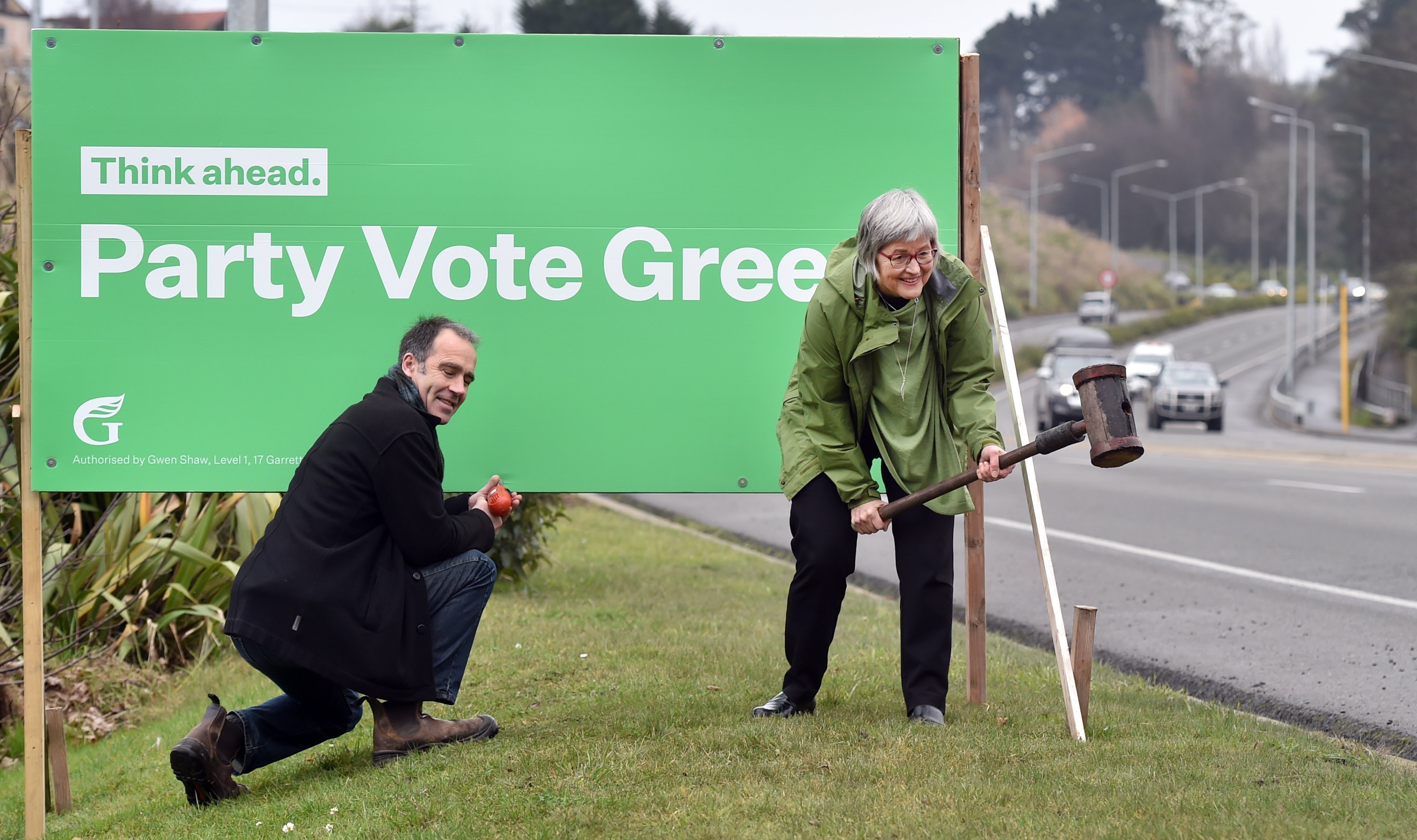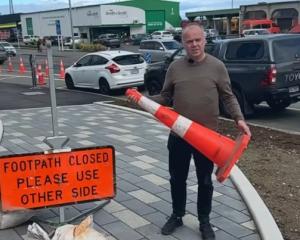
While interesting enough in and of itself, the really interesting bit is that the two MPs are not the first representatives of their party to pop down and visit Dunedin in recent times, and they are not going to be the last.

The city has been a reliable source of votes - the Dunedin seat delivered the Green’s fourth highest total of party votes in last year’s election.
At a time when Green causes are in the van like never before, with visible policy achievements it can claim some degree of credit for such as the declaration of a climate change emergency and the Labour Government’s embrace of the report of the independent climate change commission, the chance exists to grow the Green vote still further.
The problem is that while until recently the party could rely on a Dunedin-based MP to fly the party flag here, its 10-strong caucus now only has one actual South Island resident, the Banks Peninsula-based Ms Sage, as well as former Southlander Jan Logie.
The Greens have opted not to follow the example of Act New Zealand, which to manage a similar geographic conundrum has given various of its list MPs geographic areas of responsibility as well as policy portfolios, and instead made the southern provinces - and Dunedin in particular - an area of special focus for them all.
The southern Greens specifically asked for more MP visits to the region and caucus has responded: in the past couple of months there have been something like 10 visits by various MPs to Dunedin, and there are plenty more on the calendar.
There are short-term and long-term motives for this.
Immediately, the Greens have an eye on next year’s local body elections and dearly want Dunedin’s Green mayor, Aaron Hawkins, and fellow Green councillor, Marie Laufiso, to be re-elected.
Further out, the party is already thinking about 2023 and where to find an extra percentage point or two on its party vote to elect the likes of Taieri candidate and 13th on the 2020 list Scott Willis - who, quite coincidentally, has been a more active presence on social media of late.
The prominent place of Dunedin in the Green firmament is reinforced by the visit of Ms Sage (for the third time this year) and Dr Elizabeth Kerekere on Monday.
Last week, the Greens launched a housing campaign, and Dunedin is the first in a series of meetings nationwide hosted by Green MPs to push its point.
While northern cities tend to get more attention where the housing crisis is concerned, Dunedin is a microcosm of many concerns the Greens have been raising for years, such as old, poorly insulated rental stock.
Parliament will this week debate the findings of its select committee report into student accommodation, an inquiry which the Greens pushed for and which Auckland Central MP Chloe Swarbrick played a leading role in.
Parliament is also gradually working its way up to debating reform of the Resource Management Act, an issue on which Ms Sage will play a lead role, both as a party spokeswoman in the area and as chairwoman of the environment select committee.
There is a lot for the Greens to talk about at the moment; water reform, the EV car subsidy, the Carbon Zero Act, the carbon neutral government initiative and yes, indeed, even housing.
Expect its caucus - which offsets all travel through tree-planting - to keep racking up the frequent flyer miles to Dunedin as it strives to keep itself in public view in the southern city.
We’re all for it, sort of
There are many reasons why the Opposition might support a Government Bill, but Southland National MP Joseph Mooney came up with a new one in his speech in favour of the Gas (Information Disclosure and Penalties) Amendment Bill last week.
‘‘This Bill will allow New Zealand to understand just how bad the situation Labour has put us in is - it’s why we support it,’’ he said honestly, if not especially astutely in tactical terms.
Unconventional
It is an unwritten convention in New Zealand politics that MPs’ families do not get brought into the debate unless there is a good reason to do so, or they have put themselves there.
Various National MPs, including Waitaki MP Jacqui Dean, have posted memes on social media this week of the Prime Minister’s partner standing beside a ute, following Ms Ardern’s not terribly well thought out comment about ‘‘legitimate use’’ of such vehicles.
Fair enough to tackle Ms Ardern head-on on transport policy, but posting old photos of her partner does little to advance the genuine arguments National can make on this issue.
Comments
Given the damage the Greens are doing to Dunedin and Otago/Southland we could happily pass on their visit. I do hope they cycled here.
Panic. Progressives.
Another thought provoking comment hill...bravo, well done!
The typical duplicity of the Greens. Who had the greatest spending on air travel in 2020? Try (Green Party co-leaders) James Shaw and Marama Davidson.
"the Greens have an eye on next year’s local body elections and dearly want Dunedin’s Green mayor, Aaron Hawkins, and fellow Green councillor, Marie Laufiso, to be re-elected" not if the ratepayers (read, ratepayers, not those students who accept free pizza) have anything to do with it as they see the damage being done and excessive money being spent.
Flying is a huge user of fossil fuels. Do as I say, not as I do? Nahh let's blame our food producers and their Hiluxes. Why cant they all drive Nissan leafs around the sheep?
To reduce our dependence on fossil fuels, stuck in the past rural folk must adapt to using cycles and public transport. Electric cycles mean hills are no longer a difficulty. I look forward to seeing farmers with hay bales in backpacks cycling and skateboarding around their properties, and taking the one morning bus when they have to go to the nearest shop, then several hours later the only afternoon bus home. People who live in the country do not have as much to do as workers in the city - right?











